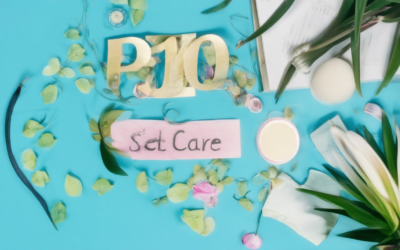Effective self-reflection practices are essential for personal and professional growth, enabling individuals to develop a deeper understanding of themselves, their values, and their goals. By cultivating self-awareness through regular reflection, individuals can identify areas for improvement, overcome obstacles, and make informed decisions that align with their aspirations. This comprehensive guide explores the importance of self-reflection, its role in professional development, and provides practical strategies for implementing effective self-reflection practices in various settings.

5 Steps for Self-Reflection
As someone who values personal growth and self-awareness, I’ve found that regular self-reflection is essential for making progress towards my goals.
-
Step 1: Set Intention
Before beginning your self-reflection practice, take a moment to set your intention. What do you hope to gain from this process? Is there a specific area of your life that you’d like to focus on?
-
Step 2: Identify Your Thoughts and Emotions
Take a few minutes to reflect on your thoughts and emotions. What have you been thinking about lately? How have you been feeling? Try to identify any patterns or themes that may be emerging.
-
Step 3: Examine Your Actions and Behaviors
Next, consider your actions and behaviors. Are there any habits or patterns that you’d like to change? Are there any areas where you feel stuck or uncertain?
-
Step 4: Seek Feedback and Support
Consider seeking feedback and support from trusted friends, family members, or mentors. Ask for their honest opinions and advice, and be open to constructive criticism.
-
Step 5: Create an Action Plan
Finally, take what you’ve learned and create an action plan. What changes can you make to move forward in a positive direction? Break down larger goals into smaller, manageable steps, and commit to taking consistent action.
By following these 5 steps, you’ll be able to cultivate greater self-awareness, make positive changes in your life, and achieve your goals.
What is Self-Reflection of Practice?
I believe that self-reflection of practice is a crucial aspect of personal and professional growth.
-
Self-reflection involves taking a step back to examine our thoughts, feelings, and actions, and making conscious decisions about how we can improve.
-
Through self-reflection, we can identify patterns and habits that may be holding us back, and develop strategies to overcome them.
-
By regularly practicing self-reflection, we can cultivate greater awareness, empathy, and understanding of ourselves and others.
The Benefits of Self-Reflection of Practice
-
Improved decision-making and problem-solving skills
-
Increased self-awareness and emotional intelligence
-
Better relationships and communication skills
-
Greater resilience and adaptability in the face of challenges
How to Practice Self-Reflection of Practice
-
Schedule regular time for reflection, whether daily, weekly, or monthly
-
Ask yourself open-ended questions, such as “What did I learn today?” or “What could I have done differently?”
-
Write down your thoughts and insights, and review them regularly
-
Seek feedback from trusted friends, family, or colleagues
Conclusion
Self-reflection of practice is a powerful tool for personal and professional growth, allowing us to gain insight into our strengths and weaknesses, and make intentional choices about how we want to show up in the world.

The Five Principles of Reflective Practice
In order to cultivate a deeper understanding of ourselves and our actions, we must engage in reflective practice.
-
Being
Being is the foundation of reflective practice, representing our presence and vulnerability in creating a reflective climate.
-
Speaking
Speaking involves expressing our thoughts and feelings in a clear and concise manner, allowing us to articulate our experiences and gain insight.
-
Disclosing
Disclosing requires us to share our thoughts and feelings openly, fostering trust and encouraging others to do the same.
-
Testing
Testing involves examining our assumptions and challenging our perspectives, helping us to identify areas for growth and development.
-
Probing
Probing encourages us to ask questions and seek clarification, promoting a deeper understanding of ourselves and others.
By incorporating these five principles into our daily lives, we can develop a greater sense of self-awareness and improve our relationships with others.
Reflective practice is essential for personal growth and development, enabling us to learn from our experiences and apply what we have learned to future situations.
As we continue to navigate life’s challenges, reflective practice serves as a powerful tool for self-discovery and improvement.

Examples of Self-Reflection
Self-reflection is a powerful tool for personal growth and development, allowing us to examine our thoughts, emotions, and behaviors in order to gain insight and understanding.
- Journaling: Writing down our perspectives, thoughts, feelings, and experiences can be a therapeutic way to process and reflect on our lives.
- Mindfulness Meditation: Practicing mindfulness meditation can help us become more aware of our thoughts and emotions, allowing us to better understand ourselves and make positive changes.
- Gratitude Practice: Reflecting on the things we’re grateful for can help shift our focus away from negative thoughts and cultivate a more positive mindset.
- Self-Inquiry Exercises: Asking ourselves questions like “What am I proud of?” or “What can I improve on?” can help us identify areas for growth and development.
- Seeking Feedback: Asking trusted friends, family members, or mentors for feedback can provide valuable insights into our strengths and weaknesses.
- Reflecting on Past Experiences: Examining past experiences, successes, and failures can help us learn from our mistakes and develop greater self-awareness.
- Practicing Self-Compassion: Treating ourselves with kindness, understanding, and patience can help us develop a more positive relationship with ourselves.
- Engaging in Creative Activities: Engaging in creative activities like art, music, or writing can provide an outlet for self-expression and reflection.
- Setting Goals and Intentions: Setting goals and intentions can help us clarify our values and priorities, and provide direction for our actions.
By incorporating these self-reflection techniques into our daily lives, we can gain a deeper understanding of ourselves and make positive changes towards achieving our goals and living a more fulfilling life.
7 Reflective Questions to Help You Grow
I’ve found these questions helpful in my own self-reflection journey, and I hope they inspire you to take a closer look at yourself too.
-
1. What am I grateful for today?
This simple question helps shift our focus to the positive aspects of life, cultivating a sense of gratitude and appreciation.
-
2. What am I proud of accomplishing recently?
Reflecting on our accomplishments helps us recognize our strengths and build confidence in our abilities.
-
3. What triggers stress or anxiety in me?
Identifying stressors allows us to develop strategies for managing them and reducing overall stress levels.
-
4. How can I show kindness to someone today?
Practicing acts of kindness not only benefits others but also increases feelings of happiness and connection.
-
5. What self-care practices do I need to prioritize?
Making time for activities that nourish our mind, body, and soul is essential for maintaining overall well-being.
-
6. Am I holding onto something that’s no longer serving me?
Letting go of negative patterns, relationships, or emotions frees us up to focus on growth and positivity.
-
7. What steps can I take towards my long-term goals?
Breaking down larger objectives into smaller, manageable tasks helps us stay motivated and focused on progress.

What Are 5 Examples of Reflection?
Reflection is a powerful tool for personal growth, learning, and self-awareness. It involves examining your thoughts, feelings, and actions to gain insight into your experiences and behaviors.
- Journaling: Writing down your thoughts and feelings can help you process and reflect on your experiences. Regular journaling can lead to increased self-awareness, improved emotional regulation, and better decision-making.
- Mindfulness Meditation: Mindfulness meditation involves paying attention to the present moment, often through breathwork or body scan exercises. By cultivating mindfulness, you can develop greater awareness of your thoughts, emotions, and physical sensations, leading to increased self-reflection and emotional intelligence.
- Self-Inquiry Exercises: Self-inquiry exercises involve asking yourself questions about your values, goals, and motivations. Examples might include “What am I grateful for today?” or “What am I proud of accomplishing recently?” These exercises can help you clarify your priorities and identify areas for personal growth.
- Reflective Conversations: Engaging in reflective conversations with others can provide valuable opportunities for feedback, support, and growth. This might involve discussing challenges or successes with a friend, family member, or mentor, or participating in group discussions or workshops.
- Reviewing Goals and Progress: Regularly reviewing your goals and progress can help you stay motivated, focused, and accountable. This might involve setting aside dedicated time for goal-setting, tracking progress, and celebrating achievements.
By incorporating these examples of reflection into your daily life, you can cultivate greater self-awareness, improve your relationships, and achieve your goals.




0 Comments